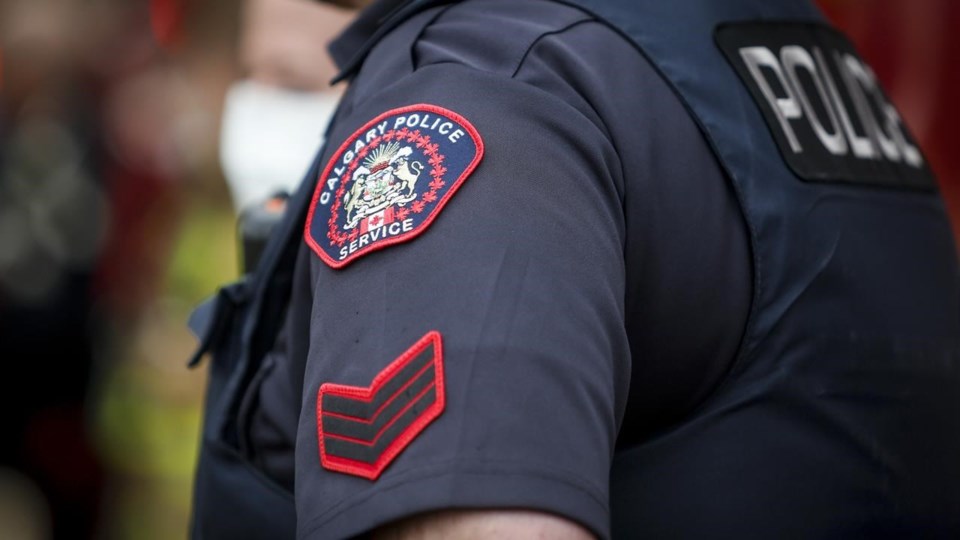Calgary's police chief says officers were in a no-win situation when anti-vaccine, anti-mask protesters got into a "standoff situation" with residents and other counter-protesters on the weekend.
Mark Neufeld held a news conference Monday to respond to concerns from the mayor, city councillors and residents that police have allowed the weekly protest to grow by not enforcing the law.
"It's a very complicated issue and it's not just a Calgary issue," Neufeld told reporters. "We've actually seen these protests in other cities in our province, in other provinces, in our country and even internationally."
Neufeld said rather than blame police, people should be working together to come up with some solutions.
Calgary Mayor Jyoti Gondek said on social media Saturday that the disruption was a parade rather than a protest, yet had no permits or licences. She said it's time to face the fact that the protests require more than crowd control.
People living in and around the Beltline, an area just south of the city's downtown, said the protests have been taking place every weekend since the start of the COVID-19 pandemic.
"It really kicked up a notch with the Ottawa convoy," said Peter Oliver, president of the Beltline Neighbourhoods Association.
Billed as the Freedom Convoy, the demonstration in Ottawa began Jan. 28 as transport trucks and thousands of people converged on Parliament Hill and took over downtown Ottawa for about three weeks. It prompted Prime Minister Justin Trudeau to invoke the federal Emergencies Act. Arrests began Feb. 17, and by the end of the following day, police had charged more than 100 people with various offences.
Oliver said the Calgary protests relocated to Central Memorial Park, which is in the Beltline across from a health centre, and have ballooned to thousands of people every Saturday. They include food and merchandise tables and a "real toxic mix" of people, he said.
Oliver said residents were willing to put up with the disruption for awhile, but they've had enough with the hateful messages and honking horns.
Some residents, he said, tried to take back their community Saturday by blocking the route into the community by the protesters.
Neufeld said officers had the difficult task of managing the two separate but related protests.
He said the "freedom" protesters refused — for the first time — to follow police directions, which led to the two groups coming together in what was seen as a public safety issue.
Police were seen in videos physically moving some of the residents and counter-protesters using police service bikes.
"This was a damned if you do and damned if you don't, no-win for the police," said Neufeld.
"When you get two groups coming together like this who seem to be pitted on having conflict, there is going to be no win."
The Calgary Police Commission, which provides independent civilian oversight and governance of the police, said in a statement it understands the frustrations of downtown and Beltline residents and businesses who have dealt with the protests for the past two years.
"We have been in discussions with the Calgary Police Service and city council to try find a solution that respects people's Charter rights to protest and peacefully assemble, while also stopping the disproportionate impact these protests are having on communities in our city's core," it reads.
"This past weekend's events show a clear escalation in the situation that needs to be addressed, and everyone involved will continue working together this week to find a better path forward."
This report by The Canadian Press was first published on March 14, 2022.
Colette Derworiz, The Canadian Press


